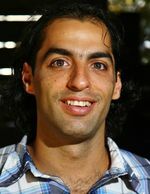
Software Engineer
Rubrik Inc.
Palo Alto, CA, USA
mobavarian[ta]gmail[td]com
https://bavarian.dev/

Research Scientist
Google Research
Mountain View, CA, USA
badihghazi[ta]gmail[td]com
https://sites.google.com/view/badihghazi/home

Research Scientist
Amazon Inc.
Tel Aviv, Israel
seladh[ta]gmail[td]com

Postdoctoral Scholar
Toyota Technological Institute at Chicago
Chicago, IL, USA
pritish[ta]alum[td]mit[td]edu
https://pritishkamath.github.io/

Institute Professor
Massachusetts Institute of Technology
Cambridge, MA, USA
rivest[ta]mit[td]edu
https://people.csail.mit.edu/rivest/
Ron has current research interests in cryptography, computer and network security, voting systems, and algorithms. In the past he has also worked extensively in the area of machine learning.
Ron is a coauthor (with Thomas Cormen, Charles Leiserson, and Clifford Stein) of the well-known text Introduction to Algorithms, published by MIT Press. Over 500,000 copies of this text have been sold. It has been translated into 12 languages.
Ron is an inventor of the RSA public-key cryptosystem. He has extensive experience in cryptographic design and cryptanalysis, and has published numerous papers in these areas. He is a founder of RSA Data Security. (RSA was bought by Security Dynamics; the combined company was renamed to RSA Security, and later purchased by EMC), and is also a co-founder of Verisign and of Peppercoin.
Ron is a member of the CalTech/MIT Voting Technology Project. He served 2004--2009 on the Technical Guidelines Development Committee (TGDC), advisory to the Election Assistance Commission, developing recommendations for voting system certification standards; he was chair of the TGDC's Computer Security and Transparency Subcommittee. He also serves on the Board of the Verified Voting Foundation. He is a member of a Scantegrity team developing and testing voting systems that are verifiable “end-to-end.” He has worked extensively on statistical post-election tabulation audits, of both the “risk-limiting audit” and “Bayesian” flavors.
Ron is a member of the Center for Science of Information.

Gordon McKay Professor of Computer Science
Harvard John A. Paulson School of Engineering and Applied Sciences
Cambridge, MA, USA
madhu[ta]cs[td]harvard[td]edu
madhu.seas.harvard.edu/
While Madhu's research explores communication and computational complexity, he prefers simplicity, and is especially proud of his exposition (with Peter Gemmell) on the Berlekemp-Welch decoding algorithm and his exposition (with David Xiang) of the analysis of the Lempel-Ziv compression algorithm.
